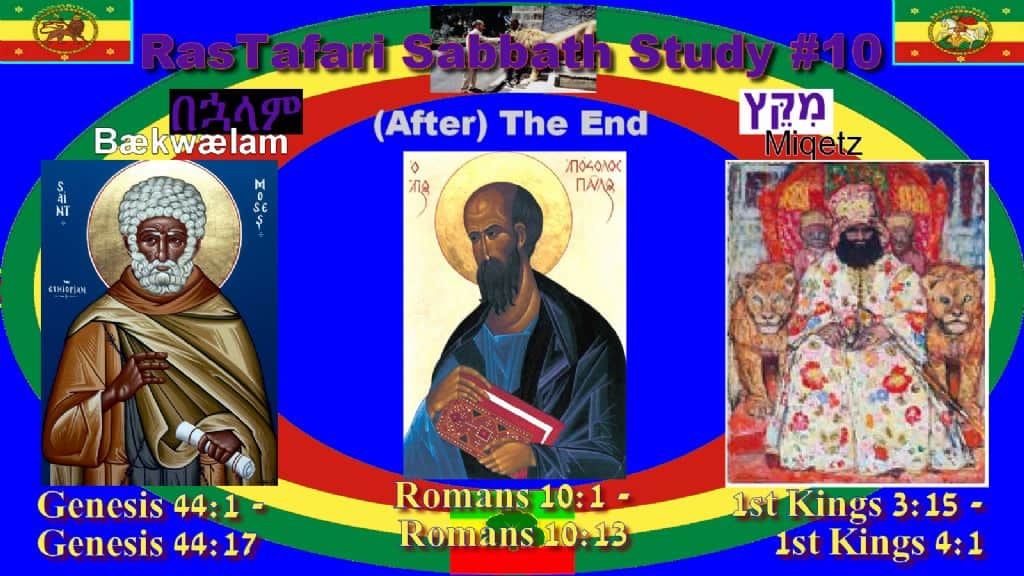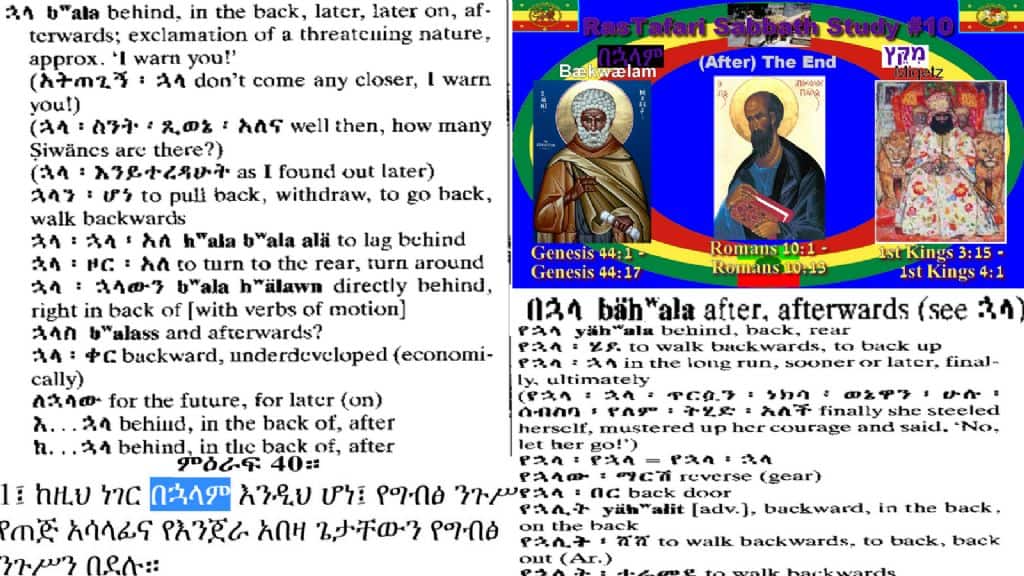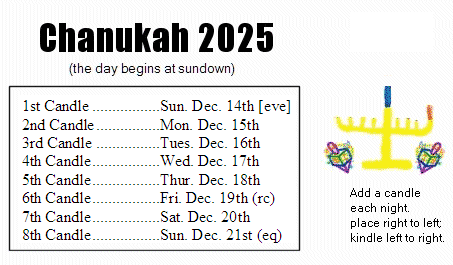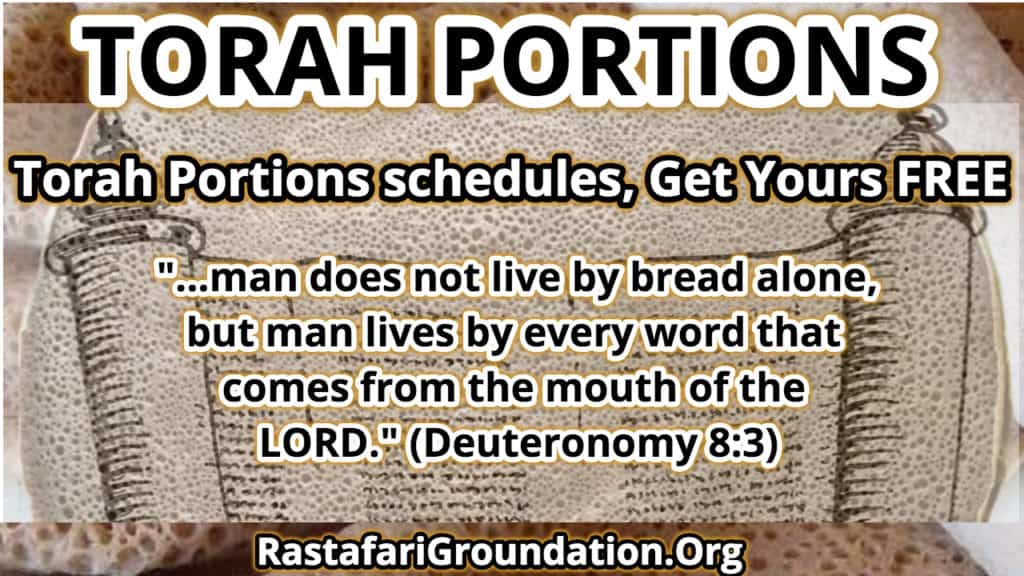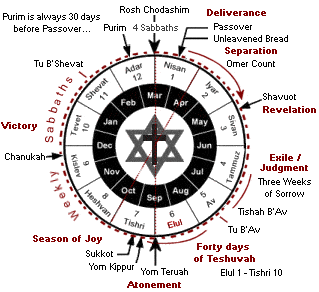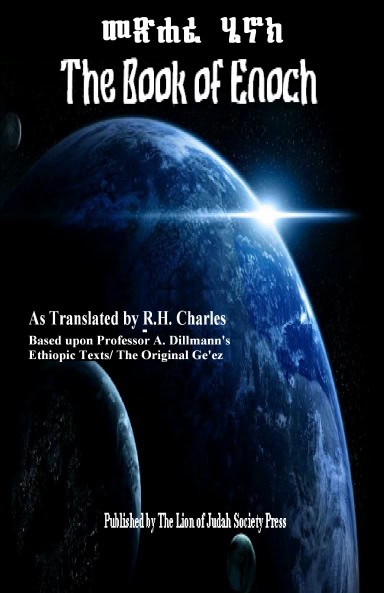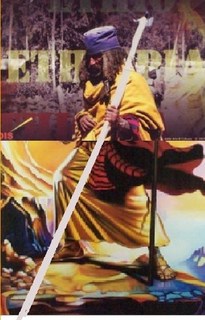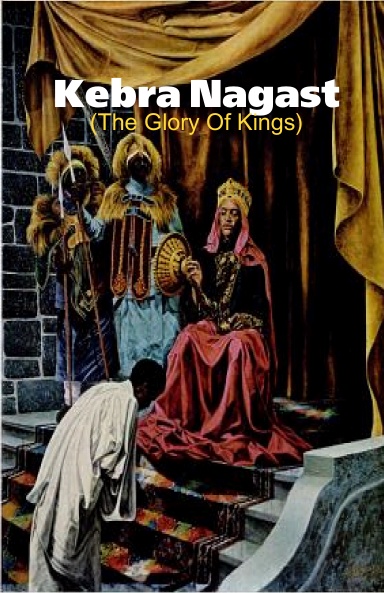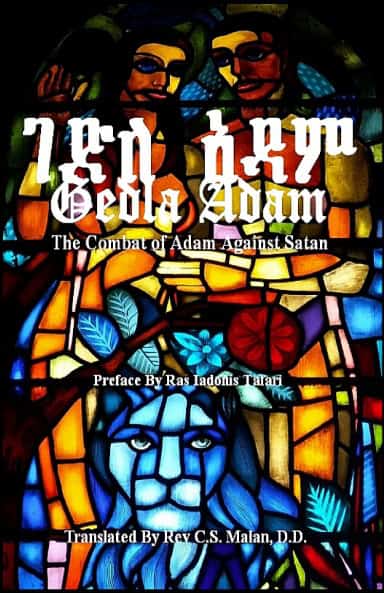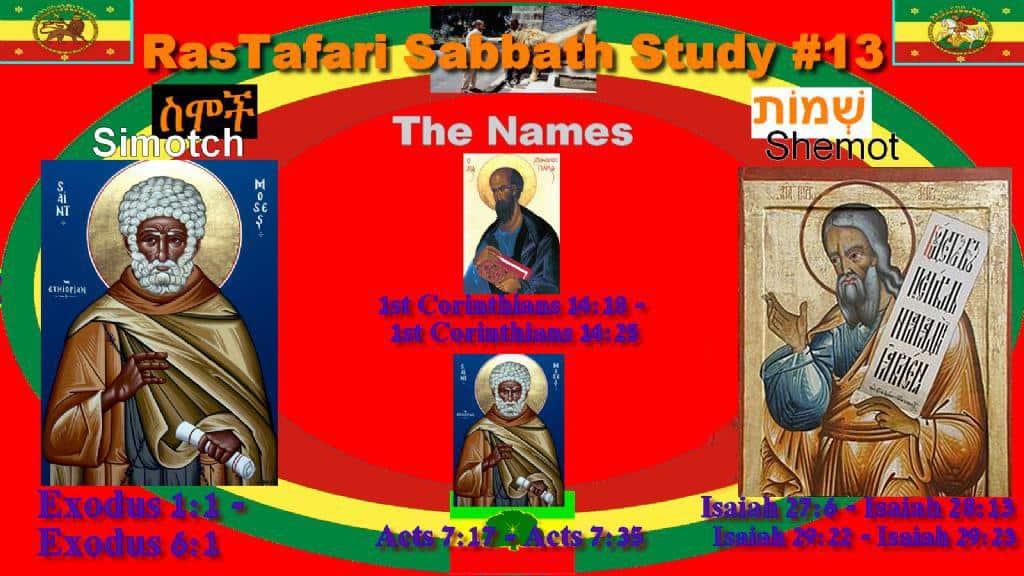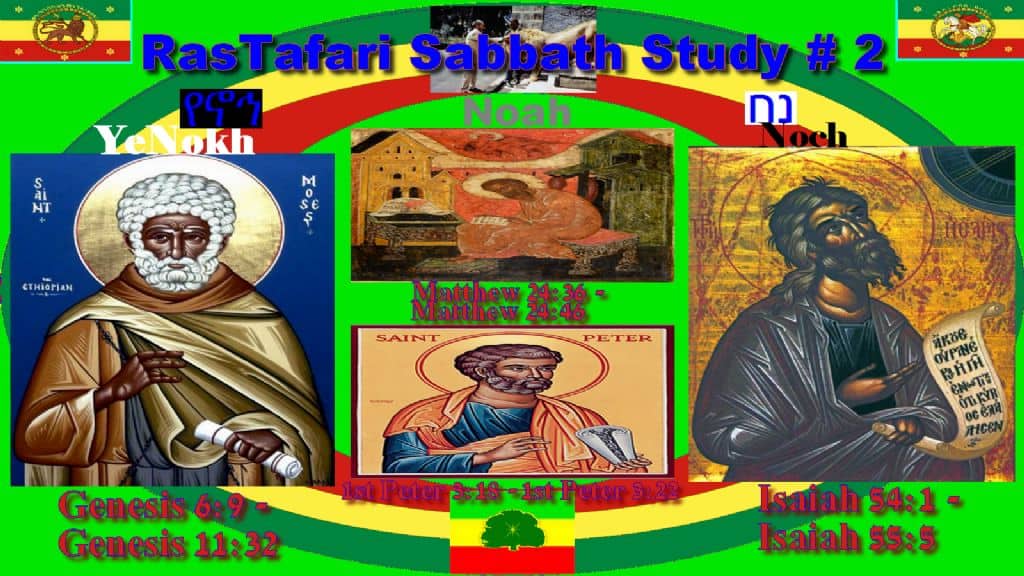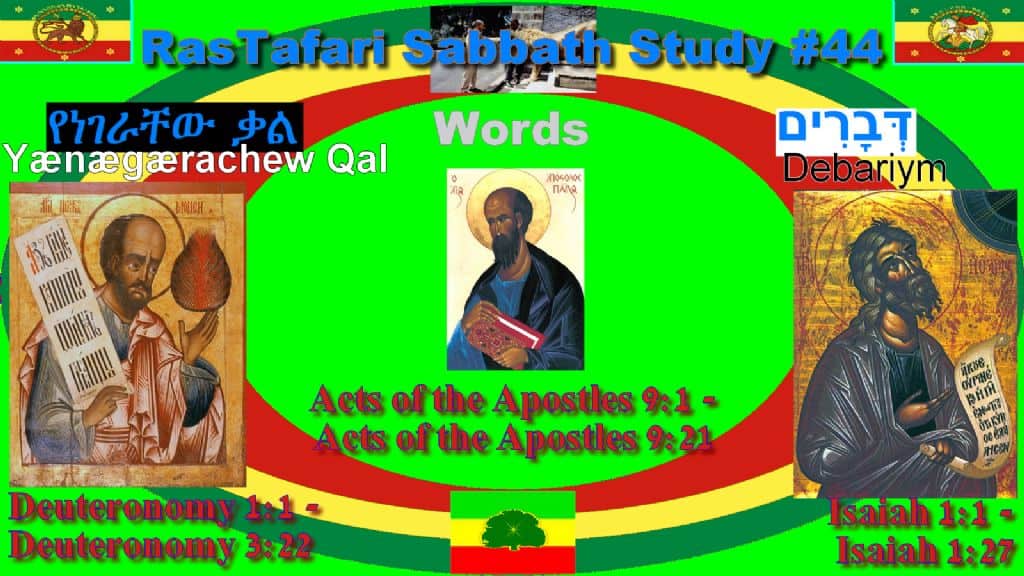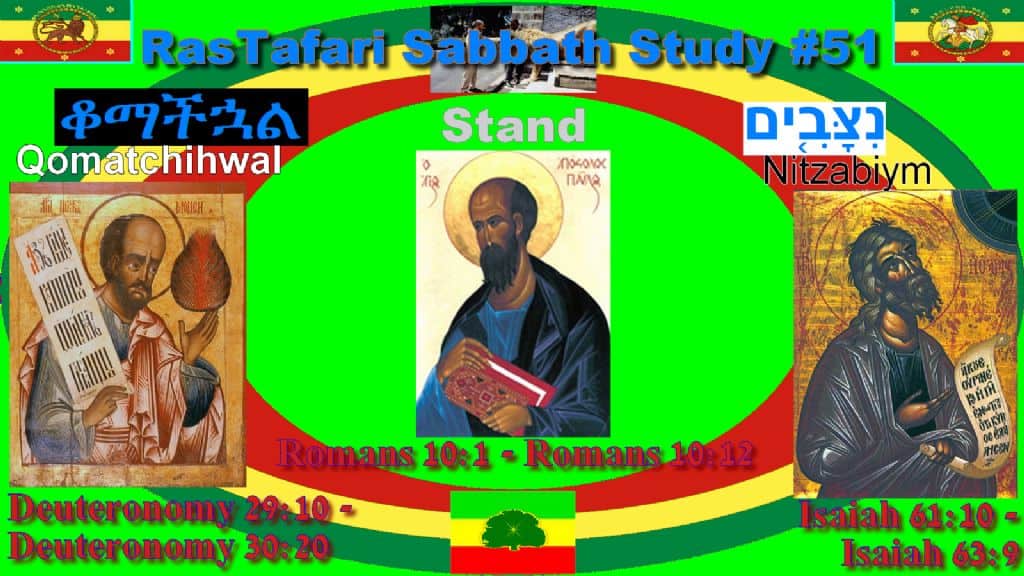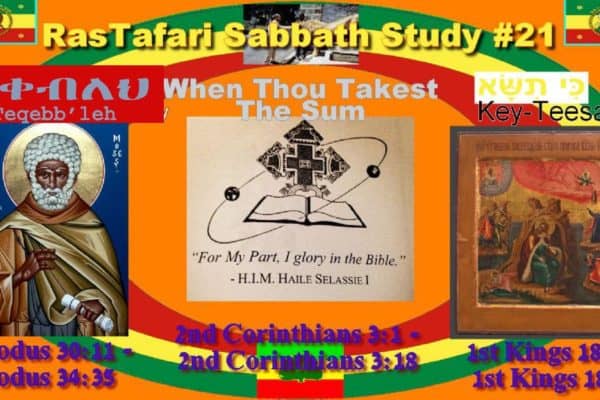This Week's Portion #10
Miketz | מקץ | "At the end of" በኋላም | BeKhw’allam
*For a PDF version of All the Torah Portions Schedule, click here to download!
2. Prophets Reading
1 Kings 3:15-4:1; Zechariah 2:14-4:7
3. New Testament Reading
Romans 10:1-13
Portion Outline - TORAH
- Genesis 41:1 | Joseph Interprets Pharaoh's Dream
- Genesis 41:37 | Joseph's Rise to Power
- Genesis 42:1 | Joseph's Brothers Go to Egypt
- Genesis 42:26 | Joseph's Brothers Return to Canaan
- Genesis 43:1 | The Brothers Come Again, Bringing Benjamin
- Genesis 44:1 | Joseph Detains Benjamin
Portion Outline - PROPHETS
- Zechariah 2:14 | Interlude: An Appeal to the Exiles
- Zechariah 3:1 | Fourth Vision: Joshuahua and Satan
- Zechariah 4:1 | Fifth Vision: The Lampstand and Olive Trees
Portion Study Book Download & Summary
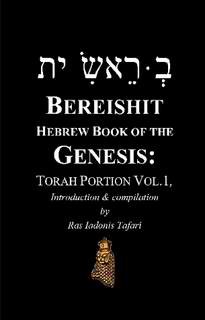 BEREISHIT Hebrew Book of Genesis - Torah Portion Vol.1 (FREE PDF)
BEREISHIT Hebrew Book of Genesis - Torah Portion Vol.1 (FREE PDF)
The tenth reading from the book of Genesis is named Miketz (מקץ), which means “the end.” The title comes from the first verse of the reading, which says, “Now it happened at the end of two full years that Pharaoh had a dream” (Genesis 41:1). The portion begins with Pharaoh’s portentous dreams, Joseph’s interpretations and his subsequent rise to power over Egypt. When a famine strikes the land of Canaan, his brothers come to Egypt seeking grain, but they do not recognize Joseph, who engineers a means by which he can test their character.
Portion Commentary
This Too Is For the Good
Thought for the Week:
Accept the things that happen to you as good, knowing that apart from God nothing comes to pass. (Didache 3:10) We know that God causes all things to work together for good to those who love God, to those who are called according to His purpose. (Romans 8:28)
Commentary:
The life of Joseph demonstrates God's sovereign hand in human lives. Though the world seems to follow a completely random course around us, God is actually working out His purposes in the midst of it. From Joseph's point of view, there was no reason to suspect that God had his best interests in mind. Joseph had been kidnapped and betrayed by his own brothers, sold into Egypt as a slave, falsely accused of attempted adultery and imprisoned in a dungeon. His life seemed to be following Murphy's Law of "if anything can go wrong, it will." So far, everything had gone wrong.
Joseph stubbornly clung to an unshakable confidence in the God of his fathers. Even though everything had tumbled down around him, He kept looking to God and believing that God was working through the chaos. He never fell into depression or despondency because he always believed that he was right where God had placed him.
This can be compared to the story of a rabbi from the days of the Apostles named Nacham. Everyone called him "Nacham This-Too" because, no matter what happened, he would always say, "This too is for the good." Amazingly, God honored his faith by continually providing miracles for Nacham. Once it happened that Nacham This-Too was serving as an ambassador to Rome. He was presenting the Roman Emperor with a gift from the people of Judea in an attempt to bribe him into reversing some anti-Jewish legislation. While en route to Rome the chest he stopped at an inn. While he slept, the inn-keeper stole the precious treasures meant for the emperor from Nacham's chest and replaced them with sand! Nacham went to Rome, unaware that he was carrying a box of sand. When the emperor opened the chest and saw the sand, he ordered Nacham to be put to death. Nacham simply replied, "This too is for the good." Just then Elijah the prophet appeared in the guise of a Roman officer and suggested that perhaps the sand was "magic sand." The emperor agreed to test the theory, and indeed, when his troops hurled the sand at their enemies, they prevailed in battle. The emperor immediately released Nacham, reversed his decree against the Jews and rewarded Nacham with great wealth.
The story of Nacham This-Too is a good illustration of Joseph's story. Like Nacham This-Too, Joseph refused to be pushed around by life's circumstances. Instead he looked to God for strength and encouragement, and he kept on believing.
In this week's Torah reading, we will see how Joseph's this-too-is-for-the-good type of faith was rewarded and how his fortunes changed.
Middot U'Mitzvot (Character and Deeds)
Giving in Secret
It might seem that Joseph was actually nursing a grudge against his brothers when he accused them of spying and sent them back to Canaan to get their brother Benjamin. If that were the case, he would not have had their money placed back in their sacks. He shows his love for his brothers by bestowing secret charity on them. Prior to their departure, he instructed his servants to secretly return the money that each of the brothers had paid for the grain. The brothers left Egypt unaware that they were carrying their silver back home with them.
The Master says that when we give charity, it should be done Joseph-style:
But when you give to the poor, do not let your left hand know what your right hand is doing, so that your giving will be in secret; and your Father who sees what is done in secret will reward you. (Matthew 6:3-4)
Joseph wanted to give his brothers a charitable gift. He knew that the famine conditions in Canaan must be creating financial hardship. Rather than announce the charitable deed with a fanfare of trumpets, though, he secretly had the money slipped into their bags.
Maimonides (Rambam) explains that there are different levels of giving charity. One of the lower levels of giving charity is when the deed is known to both the giver and the receiver. A far higher level of charity is secret charity. The person who gives charity secretly does so only for the sake of love. He knows that no one will be able to thank him. He will not earn any reward in the eyes of men.
Happy Chanukah!
Chanukah begins Sunday evening, December 14, 2025 and continues through Monday, December 22, 2025
On the Biblical calendar the month of Kislev (כִּסְלֵו) is the ninth of the year (counting from Nisan), and also one of the "darkest," with the days progressively getting shorter and the nights getting longer. Indeed, the Winter Solstice often occurs during the last week of Kislev, and therefore the week of Chanukah (which straddles the months of Kislev and Tevet) often contains the longest night of the year. It is no wonder that, among other things, the holiday of Chanukah represents an appropriate time to kindle the lights of faith - and to remember the Light of the World in the Messiah's advent to earth...
The Hebrew word Chanukah (חֲנֻכָּה) means "dedication" and marks an eight day winter celebration that commemorates the victory of faith over the ways of speculative reason, and demonstrates the power of the miracle in the face of mere humanism. Although it is customarily observed as a "Festival of Lights," Chanukah is a "fighting holiday" -- a call to resist the oppression of this world and to exercise faith in the LORD (Rom. 13:12).
This year the eight days of Chanukah will begin on Sunday December 14th at sundown (1st candle) and will run until Sunday, December 21st just before sundown. On the first night of Chanukah one flame is lit, on the second night two, and so on until the eighth night when eight flames are lit. In this way we remember the 'growth' of the miracle.
- More information about Chanukah...
- Chanukah Blessings Page
- Chanukah Blesssings Summary Sheet (pdf)
- Should Christians celebrate Chanukah?
Chanukah Torah Readings
Because Chanukah is an eight-day holiday, there has to be at least one day when Shabbat and Chanukah overlap (called "Shabbat Chanukah"), and in some cases there are even two (e.g., on years when Chanukah begins on a Shabbat). When this occurs, the time-saving custom is to read the maftir from a different Torah scroll during services. During the rest of the week, the maftir is divided over the eight days of Chanukah as follows (remember that the day begins at sundown on the Jewish calendar):
|
Day |
Torah | Haftarah | Brit Chadashah |
| Chanukah 1 Kislev 25, 5786 Sun. Dec. 14 [eve] |
Numbers 7:1-7:17 | Zech. 2:10-4:7 (only if Shabbat) |
John 9:1-7; John 10:22-39 |
| Chanukah 2 Kislev 26, 5786 Mon. Dec. 15 [eve] |
Numbers 7:18-7:29 | John 9:1-7; John 10:22-39 |
|
| Chanukah 3 Kislev 27, 5786 Tues. Dec. 16 [eve] |
Numbers 7:24-7:35 | John 9:1-7; John 10:22-39 |
|
| Chanukah 4 Kislev 28, 5786 Wed. Dec. 17 [eve] |
Numbers 7:30-7:41 | John 9:1-7; John 10:22-39 |
|
| Chanukah 5 Kislev 29, 5786 Thur. Dec. 18 [eve] |
Numbers 7:36-7:47 | John 9:1-7; John 10:22-39 |
|
| Chanukah 6 Kislev 30, 5786 Fri. Dec. 19 [eve] |
Numbers 28:1-17; Numbers 7:54-59 |
Num. 28:1-15 (Rosh Chosesh Tevet) |
John 9:1-7; John 10:22-39 |
| Chanukah 7 Tevet 1, 5786 Sat. Dec. 20 [eve] |
Numbers 7:48-7:59 | John 9:1-7; John 10:22-39 |
|
| Chanukah 8 Tevet 2, 5786 Sun. Dec. 21 - Mon. 22 |
Numbers 7:54-8:4 | 1 Kings 7:40-50 (only if 2nd Shabbat) |
John 9:1-7; John 10:22-39 |
Since Chanukah celebrates the victory of Maccabee forces over the Greeks and the re-dedication of the Holy Temple in Jerusalem, the additional Chanukah Torah readings are connected to the dedication of the Mishkan (Tabernacle) in the wilderness.
On the first seven days of Chanukah we read of the sacrifices and gifts offered by the first seven tribal leaders. On the eighth day we read of the offerings of the remaining five leaders, and we continue to the next Torah portion, reading about God's commandment to Aaron to kindle the Menorah in the Tabernacle. On the Shabbat of Chanukah we add the Haftorah reading (from the Book of Zechariah) that speaks of Zechariah's prophecy concerning a menorah. (On Rosh Chodesh Tevet, usually the 6th day of Chanukah, additional readings about the new month are recited.)
In the synagogue, on each of the days of Chanukah we recited the full Hallel (הלל שלם). In addition, the Al Hanissim is included as part of the Hoda'ah blessing (of the Amidah) and Birkat Hamazon (i.e., the traditional blessing recited after eating a meal). Al HaNissim praises God for delivering the Jewish people at the time of the Maccabees. Collectively these praises and blessings are called Yemei Hallel v'Hoda'ah in the prayerbook.
The Birth of the Savior...
Though the promised birth of Yeshua may have occurred during the holiday of Sukkot (Tabernacles), with the incarnation occurring during Chanukah (the Festival of Light), many people of good faith still observe the traditional date of December 25th. Regardless of your particular conviction surrounding the date of Messiah's birth, however, the most important point is that he was born to die (Heb. 10:5-7). Indeed, the story of his birth is only significant in relation to His sacrificial death (Mark 8:27-33). The "manger" scene leads directly to the cross. That's the old "gospel story" itself, that "God so loved the world that He gave His only begotten Son, that whoever believes in Him should not perish but have eternal life" (John 3:16). This matter is of "first importance," namely that Yeshua was born to die for our sins, to make us right with God, and was raised from the dead to vindicate the righteousness of God (1 Cor. 15:3-5). His birth (or rather His incarnation) was the "first step" toward His sacrifice for our deliverance (Heb. 2:9-18).
And while "Christmas" is customarily the time that many people observe the birth of the Savior, it is surely appropriate to celebrate Yeshua's glory as our risen King and Lord every day of our lives.... Therefore I sincerely wish each and every one of you a wonderful Christmas Season. May we all take time to reflect upon the profound gift of the One who was so great that He emptied Himself (κένωσις) of all His regal glory and power to be clothed in human flesh in order to die as our sin offering before the Father.
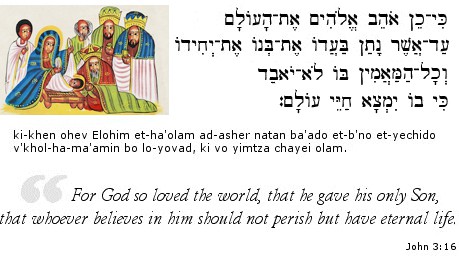 Note: For some (hopefully irenic) discussion about possible birth dates for Yeshua, see "Was Jesus born on December 25th?" For traditional Christmas readings from the New Testament, see Matt. 1:18-2:12, Luke 1:26-2:20.
Note: For some (hopefully irenic) discussion about possible birth dates for Yeshua, see "Was Jesus born on December 25th?" For traditional Christmas readings from the New Testament, see Matt. 1:18-2:12, Luke 1:26-2:20.
- Promised birth of the Savior
- When was Yeshua born?
- He was born to die...
- The Gospel in the Garden...
- Yom Kippur and Christmas...
- The Word Made Flesh - Thoughts on the Birth of Messiah
- The Word Made Flesh Audio mp3 (SoundCloud here)
- Calendars and Assumptions...
Blessing before Torah Study:
Some terms:
- Parashah is the weekly Scripture portion taken from the Torah. Each parashah is given a name and is usually referred to as "parashat - name" (e.g., parashat Noach). For more information about weekly readings, click here.
- Aliyot refer to a smaller sections of the weekly parashah that are assigned to people of the congregation for public reading during the Torah Reading service. In most congregations it is customary for the person "called up" to recite a blessing for the Torah before and after the assigned section is recited by the cantor. For Shabbat services, there are seven aliyot (and a concluding portion called a maftir). The person who is called to make aliyah is referred to as an oleh (olah, if female).
- Maftir refers to the last Torah aliyah of the Torah chanting service (normally a brief repetition of the 7th aliyah, though on holidays the Maftir portion usually focuses on the Holiday as described in the Torah). The person who recites the Maftir blessing also recites the blessing over the Haftarah portion.
- Haftarah refers to an additional portion from the Nevi'im (Prophets) read after the weekly Torah portion. The person who made the maftir blessing also recites the blessing for the Haftarah, and may even read the Haftarah before the congregation.
- Brit Chadashah refers to New Testament readings which are added to the traditional Torah Reading cycle. Often blessings over the Brit Chadashah are recited before and after the readings.
- Mei Ketuvim refers to a portion read from the Ketuvim, or writings in the Tanakh. Readings from the Ketuvim are usually reserved for Jewish holidays at the synagogue.
- Perek Yomi Tehillim refers to the daily portion of psalms (mizmorim) recited so that the entire book of Psalms (Tehillim) is read through in a month. For a schedule, of daily Psalm readings, click here.
- Gelilah refers to the tying up and covering the Sefer Torah (Torah Scroll) as an honor in the synagogue.
- Divrei Torah ("words of Torah") refers to a commentary, a sermon, or devotional on the Torah portion of the week.
Related Topics:
- Year Through the Torah Book
- Weekly Torah Reading Schedule (entire year)
- Weekly Psalms (Tehillim) Schedule
- Blessing said for (personal) Torah Study
- Archived Portions
- Hebrew Word of the Week

Fasting Days (ጾም)
The 7 official fasting periods ordained in the ፍትሐ ነገሥት/Fitiha Negest:
- የረቡዕ እና ዓርብ ጾም/All Wednesdays and Fridays, except for the fifty days after Easter and also if the Feasts of Christmas and Epiphany fall on these days.
- Fast of the Prophets (ጾመ ነቢያት/Tsome Nebiyat): the fast preceding Christmas and which lasts for some 40 days. It begins with Sibket on 15th of the Ethiopian month of Hedar and ends on Christmas Eve with the feast of Gena on the 28th of Tahsas.
- ጾመ ገኀድ/The Gahad of Epiphany: the fast on the eves of Epiphany and Christmas
- The Great Lent: This fast is also known as Fast of Hudadie or ዐቢይ ጾም/Abiy Tsom. It is moveable and lasts for fifty five days
- Jonah's Fast of three days also known as Fast of Ninevah (ጾመ ነነዌ/Nenawe): This is also a fast of movable dates and is observed in commemoration of the preaching of Jonah. It comes on Monday, Tuesday and Wednesday of the third week before Lent.
- Apostles' Fast (ጾመ ሐዋርያት/Tsome Hawariat): It begins on Monday after Pentecost and ends on the 5th of July.
- Assumption of St. Virgin Mary (ጾመ ፍልሰታ ለማርያም/Tsome Filseta): This fast is held from August 1-15 and is dearly observed by many.
Fast Days (Tzomim)
In addition to Yom Kippur, The Talmud (Tractate Rosh Hashana 18b) discusses four fast days (based on Zechariah 8:19) that commemorate the destruction of the First and Second Temples and the exile of the Jewish People from their homeland. In addition, two other fast days are mentioned in the Rabbinical literature, yielding a total of six tzomot (seven if Yom Kippur is included).
- Fast Days of the Jewish Year

